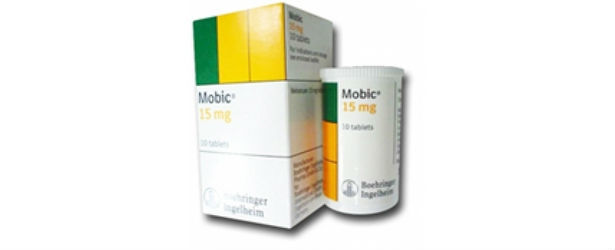
The Best Ways to Prevent Gout
Gout Prevention is one way to try and keep your body healthy and ward off gout attacks. It has been found that diet and lifestyle are major factors in the onset of this disease. If you are at risk, you can practice gout prevention right away to reduce your risk for this disabling and painful disease.
 When we say gout prevention, it means that you can make necessary changes to lower your risk. When you suffer from gout, it is caused by increased uric acid levels in the body. Uric acid is a waste product of purines. Purines come from foods including: red meats, some seafood, organ meats, and beer. When uric acid levels get too high, they form crystals that deposit in the joints and the soft tissues around them. This causes your body to increase inflammation to try and fight off the disease resulting in severe pain.
When we say gout prevention, it means that you can make necessary changes to lower your risk. When you suffer from gout, it is caused by increased uric acid levels in the body. Uric acid is a waste product of purines. Purines come from foods including: red meats, some seafood, organ meats, and beer. When uric acid levels get too high, they form crystals that deposit in the joints and the soft tissues around them. This causes your body to increase inflammation to try and fight off the disease resulting in severe pain.
If you are predisposed to getting gout with a lot of the risk factors, there is a very high chance that you will get this disease sometime in your life. If you make the necessary gout prevention type changes, you may be able to decrease your chances or lessen the severity of gout attacks. Researchers have put together a list of risk factors and found successful strategies for gout prevention to help you.
Risk Factors
Scientists have found the actual risk factors for developing gout. It is a known genetic condition, higher in males, higher in those with a family history and influenced by your lifestyle, diet, and environment. The risks increase with age and can affect some women after menopause. Here is a list of some of the risk factors you can greatly influence and reduce yourself:
- Obesity/Overweight
- Eating a diet high in purine foods
- Alcohol consumption
- High cholesterol levels
- High blood pressure
- Uncontrolled blood sugar in diabetes
- Medications including; aspirin, niacin, vitamin, cyclosporine, cancer drugs and diuretics
Gout Prevention Tips
Restrict Purine Foods. Lower or cut out foods that are high in purines. These foods include; red meat, organ meat, sardines, herring, asparagus, seafood, and mushrooms. Limit your intake to a few servings weekly 6 ounces or less and substitute foods like; turkey, chicken, cod, tuna, and beans for proteins.
Increase Dairy. You can get needed protein and calcium from dairy foods such as: yogurt, cheese, skim milk, and cottage cheese. Try to eat 2 servings of dairy daily.
Choose Beverages Wisely. Drink lots of water with gout. Increase from 8 glasses a day to 10 to 12 glasses a day to help flush out uric acid and support your kidneys. Coffee is okay if your blood pressure is stable, but beer is a very high purine beverage and should be avoided. A 5 ounce glass of wine daily may be okay. And try to avoid any soft drinks that contain any high-fructose corn syrup, which puts you at risk for gout.
Take vitamin C. Take at least 500 mg of vitamin C each day to help reduce the risk of gout. Vitamin C helps to break down uric acid and flush it through the kidneys.
Lose Weight or Try Not To Gain. Losing weight can help take strain off your body and your joints. Try not to gain too much weight if you are stable to lower your risk of gout. If you are overweight, try to lose weight slowly and do not starve yourself of nutrients.
Keep Your Health In Check. If you suffer from chronic health issues, try to keep them in check. Keep your blood pressure in normal limits, keep your cholesterol in normal limits, and remember to take your medications. See your doctor regularly to make sure your numbers are on target.
Discuss Medications With Your Doctor. If you are on a medication that puts you at risk for gout, ask your doctor if there is another safer medication that lowers the risk for gout. There may be instances where you need to take that medication. If so, practice all other tips above to help lower your risk.
Gout prevention is one way to reduce your risk of getting gout and reducing the severity if you do get this disease. Always talk to your doctor about any concerns you may have.
TOP 5
GOUTTreatments |
|||||
| GoutClear | Goutezol | Flamasil | GR-911 | Uricinex | |
|---|---|---|---|---|---|
| 1 | 2 | 3 | 4 | 5 | |
| Price (1 bottle) Price (6 bottles) Best Value |
$49.95 $135.70 |
$59.95 $359.70 |
$42.95 $257.70 |
$39.95 $169.70 |
$29.95 $179.70 |
| Overall Rating | 99.10% | 78% | 73.50% | 62.40% | 62% |
| Effectiveness* |





|





|





|





|





|
| Speed of Results* | Extremely Fast | Fast | Average | Slow | Slow |
| Quality of Ingredients | Premium | Good | Good | Average | Unknown |
| Customer Satisfaction Evaluation | 99.10% | 80% | 75.20% | 73% | 61.10% |
| Safety Evaluation | Safe for Use | Safe for Use | Safe for Use | Safe for Use | Safe for Use |
| Customer Service Rating |





|





|





|





|





|
| Reorder Rate | Highest | Good | Average | Average | Average |
| Return Policy | Risk Free | Unused | Unopened + Restocking Fee | Unopened | 2 opened only |
| Success Rate | 97.30% | 77.30% | 73% | 75.10% | 62% |

 Subscribe Now
Subscribe Now











